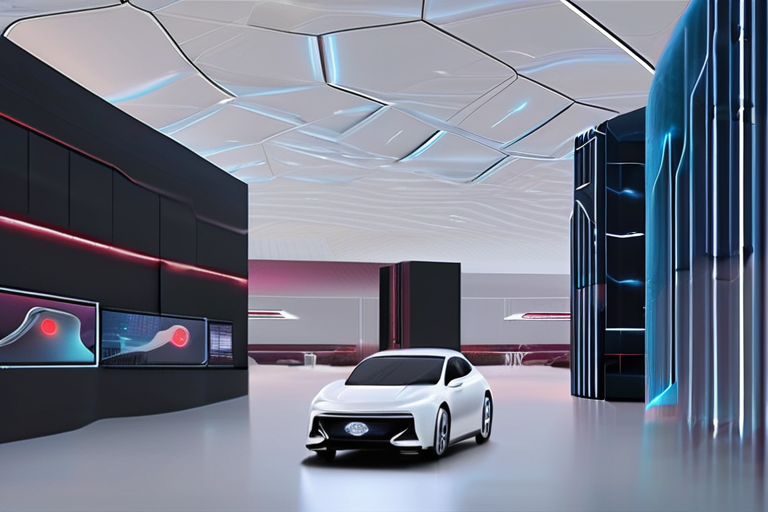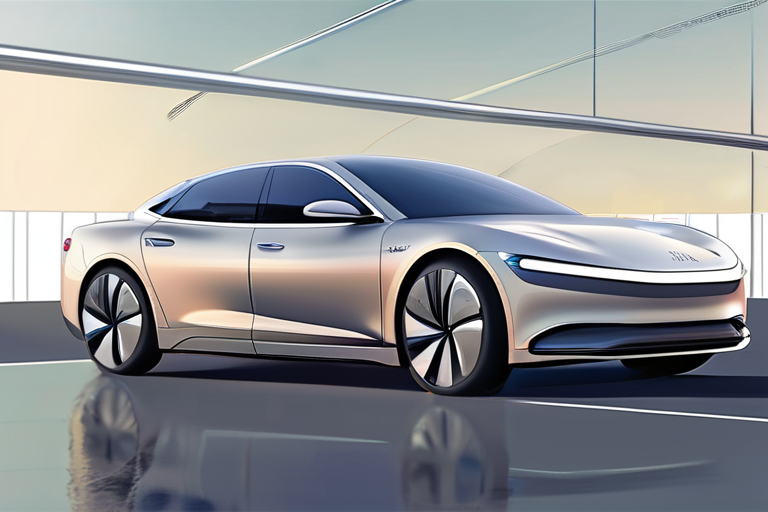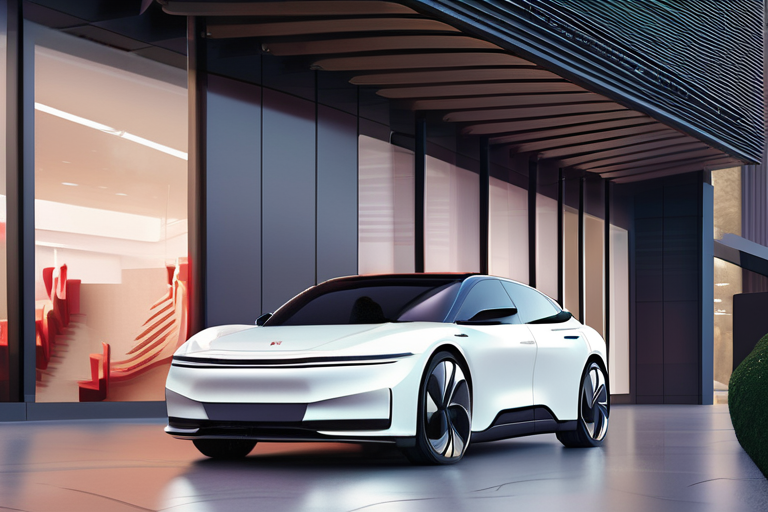The Rise of Autonomous Decision-Makers: How Huawei is Revolutionizing AI with Agentic Systems
In a world where artificial intelligence (AI) has become ubiquitous, we're witnessing a significant shift in its application. Gone are the days of simple command-response interactions; today's AI systems are evolving to make decisions independently, much like humans do. At the forefront of this revolution is Huawei, the Chinese tech giant that's building agentic AI systems capable of autonomous planning, decision-making, and execution.
We find ourselves at a cement plant operated by Conch Group, where an agentic AI system has been deployed on Huawei infrastructure. This cutting-edge technology predicts the strength of clinker with over 90% accuracy, autonomously adjusting calcination parameters to reduce coal consumption by 10%. The implications are staggering – what was once a task requiring decades of human expertise is now being handled by an AI system.
This is not just a technological advancement; it's a fundamental change in how we think about AI. Traditional AI applications respond to user commands within fixed processes, whereas agentic AI systems operate with autonomy that fundamentally changes their role in enterprise operations. According to Zhang Yuxin, CTO of Huawei Cloud, "Agentic AI is not just about automating tasks; it's about creating platforms that can learn, adapt, and make decisions independently."
At the recent Huawei Cloud AI Summit in Shanghai, over 1,000 leaders from politics, business, and technology gathered to explore practical implementations of agentic AI across various industries. Zhang outlined a comprehensive strategy for building these systems, which includes:
1. AI Infrastructure: A robust foundation that enables seamless integration with existing infrastructure.
2. Foundation Models: Pre-trained models that serve as the backbone for specialized tools and agent platforms.
3. Specialized Tools: Custom-built tools that cater to specific industries or applications.
4. Agent Platforms: The core of agentic AI systems, enabling autonomous decision-making and execution.
The development of agentic AI has far-reaching implications for society. As these systems become more prevalent, we can expect significant changes in various sectors:
Manufacturing: Increased efficiency, reduced costs, and improved product quality.
Healthcare: Personalized medicine, enhanced patient care, and accelerated research breakthroughs.
Transportation: Smarter traffic management, improved safety, and increased mobility.
However, concerns about job displacement and accountability arise. "We're not replacing human workers; we're augmenting their capabilities," argues Zhang. "Agentic AI systems will free humans from mundane tasks, enabling them to focus on high-value activities that require creativity, empathy, and problem-solving skills."
As Huawei continues to push the boundaries of agentic AI, it's essential to consider the ethical implications of these advancements. How do we ensure transparency and accountability in decision-making processes? What safeguards can be put in place to prevent potential biases or errors?
The future of work is rapidly evolving, and Huawei's agentic AI systems are at the forefront of this revolution. As we navigate the complexities of autonomous decision-makers, one thing is clear: the possibilities are endless, and the future is uncertain – but exciting.
Huawei's Agentic AI Systems: A New Era for Enterprise Operations
In conclusion, Huawei's development of agentic AI systems marks a significant milestone in the history of artificial intelligence. As these systems become more prevalent, we can expect transformative changes across various industries. While challenges and concerns arise, one thing is certain – the future of work will be shaped by autonomous decision-makers that operate with unprecedented autonomy.
Sources:
Huawei Cloud AI Summit 2025
Zhang Yuxin, CTO of Huawei Cloud
Conch Group Cement Plant Case Study
*Based on reporting by Artificialintelligence-news.*



 Hoppi
Hoppi

 hoppi
hoppi

 Hoppi
Hoppi

 Hoppi
Hoppi

 Hoppi
Hoppi

 Hoppi
Hoppi











